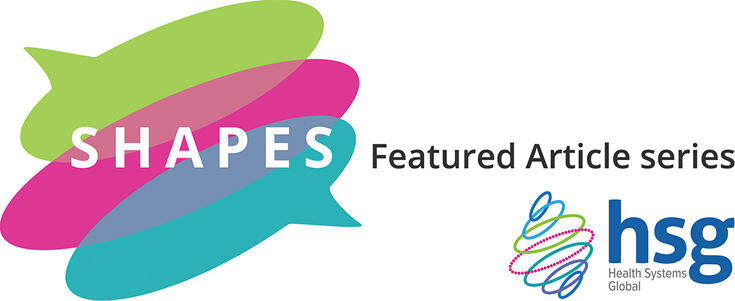
Learning to live in a new country comes with the excitement of engaging with the world in a new way – but it is equally fraught with difficulties. I stayed in Rwanda from 2007 to 2012 where I was faced with the challenge of taking up French and Kinyarwanda as new languages in order to be more responsive to my Rwandan colleagues at the MoH decentralization desk and to engage in social circles in my new country of residence. My move to Rwanda also necessitated learning how to drive on the right side of the road, a departure from the Kenyan system where we keep left.
My Rwandan transition provides perspective on my Health Policy and Systems Research (HPSR) journey and how I have managed to vernacularize HPSR into everyday health policy and systems strengthening practice.
2017 was an important year in my growth trajectory as a health systems practitioner. I registered for a PhD course at the University of Cape Town in order to pursue my growing interests in health policy and systems research. While I had been in the health systems practice for many years, getting into this new space meant immersing myself in a new language altogether, a departure from my daily interaction and use of language in the health finance and governance space in Kenya. In the coming months, epistemology, interdisciplinarity, positivism, critical realism, complex causality, conceptual contours, theories and frameworks became my new staple. This resonates with introduction of new vocabulary in the face of COVID-19. Who would have predicted that the phrases ‘social distancing’, ‘containment measures’, self-isolation’ among others would become part of our daily conversations?
Overcome the biggest psychological barrier: fear
In Rwanda I recall difficulties and discomfort with French conjugation and tenses while trying to figure out what item was male and which one was female — a cocktail made even more potent by trying to simultaneously learn Kinyarwanda vocabulary and intonations. Orienting myself into HPSR therefore felt like déjà vu. Overcoming the fear of making mistakes and speaking about my areas of discomfort had a positive impact on my linguistic and cultural learning curve in Rwanda and my ability to gain fluency and comfort in HPSR.
I learned quickly that the application of HPSR methods, theories and frameworks ranging from Kingdon’s multiple streams framework to Walt and Gilson’s policy triangle to Gaventa’s Power Cube in the analysis of power in the policy process can be daunting and messy. I therefore had to quickly be comfortable in having moments of confusion, awkwardness, and in some cases sheer panic, as I tried to make sense of these – the new terrain in HPSR.
Hang out with a local
In Rwanda I quickly surrounded myself with people who I thought spoke great French, or at least had an accent that I longed to have. Kinyarwanda was widely spoken and I was therefore keen to learn from my friends, colleagues and even the vendors at the famous Kimironko market. Learning language on the fly through immersion is far more engaging but also far more nerve-wracking than slow and contained classroom study.
Similarly, with HPSR I’ve had the good fortune — and the stress — of immersive engagement through my PhD studies and a fellowship on health policy analysis funded by the Alliance of Health Policy and Systems Research. The fellowship brings together budding researchers from different countries under the tutelage of world class faculty. It builds their capacity to conduct cutting edge policy analysis to generate knowledge on the influence of politics and power in the policy process. You can’t go any more ‘local’ in HPSR while engaging with mentors such as Profs. Lucy Gilson, Irene Agyepong, and Jeremy Shiffman among many others who have significant footprint in this area and have dedicated the greater part of their lives to HPSR. Engagement with these mentors among others has contributed significantly in improving my command of health policy analysis in real practice, and made me feel a part of the HPSR community. I continue walking with them.
Unlearn and start thinking in the foreign language
Learning to drive in Rwanda was difficult to say the least and was accompanied by many episodes of sheer panic, close calls with other motorists and questions about whether it was necessary to drive in the first place. In order to guarantee incident free driving in Rwanda I had to unlearn driving on the left while learning the rules of driving in Rwanda.
Growing in HPSR requires departure from set ways in your discipline and instead becoming ‘undisciplined’. It demands that you learn the methodologies consistent with the science, and are willing to push boundaries and straddle across disciplines. Nelson Mandela once said “If you talk to a man in a language he understands, that goes to his head. If you talk to him in his language, that goes to his heart.” To all of you who are going through the experience that I went to in acquiring a new language, keep at it! Sooner rather than later you will connect with the HPSR community of practice and the science in a deeper and more meaningful way, making your journey in this exciting space worth it.
Welcome to the SHAPES article series, hosted by IHP. SHAPES is a thematic working group within Health Systems Global, which facilitates discussion, debate and collaboration around social science approaches for research and engagement in health policy & systems. In the months leading up to the 6th Global Symposium on Health Systems Research in Dubai (Nov 2020) SHAPES members will be blogging about the Symposium's theme of "re-imagining health systems for better health and social justice" through a social science lens.
View entire SHAPES series